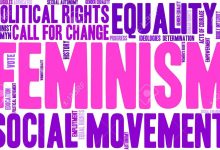Marriage is not every woman’s biggest nightmare– Global Data & Expert reveals

|
Getting your Trinity Audio player ready...
|
Claim
On Nov. 16, 2024, X user @Cosyluv_ posted, “Every woman’s biggest nightmare is late marriage.” The post was significantly engaged, receiving 15.9m views, 4.2k reposts, 687 likes, and 611 comments. Fact-checking this claim is important to challenge patriarchal stereotypes and promote diverse perspectives about women’s aspirations and desires in life.
NFM Checks
Marriage is being united as spouses in a consensual and contractual relationship recognised by law. Global statistics indicate that approximately 120 million marriages occur annually. On average, around 115,000 marriages take place worldwide every day.
In patriarchal traditions, marriage is seen as a significant milestone for women. However, no data or evidence supports the claim that every woman’s biggest nightmare is late marriage. On the contrary, marriage rates have gradually declined, particularly in developed nations, where individuals are increasingly delaying or choosing not to marry.
Women are marrying later–UN & WorldWide Data Reveals
A UN Report reveals that women are generally marrying later, at an average age of 25. This is attributed to increased education levels, greater economic independence, and increased informal unions. Research notes that as women attain higher formal training and professional success, their reliance on marriage for financial security or social status decreases. The Pew Research Center report from 2017 emphasised how educational attainment and career success have increasingly provided women with financial independence, allowing them to delay or forgo marriage. It was also found that a significant majority of women (83%) believe a woman can lead a complete and happy life while remaining single, a view more widely held by women than men.
Similarly, the 2023 World Wide Marriage statistics also show that marriage rates for opposite-sex couples have fallen to their lowest on record since 1862. In 2019, for men, there were 18.6 marriages per 1,000 unmarried men; for women, there were 17.2 marriages per 1,000 unmarried women. This signifies that more women are opting out of marriage than men. The number of marriages in sub-Saharan countries has also reduced or remained largely unchanged.
Also, in countries like South Korea, marriage has sharply decreased due to the 4B Movement, with feminists from the country abandoning patriarchal institutions and notions altogether.
“In 2023, South Korea recorded one of the lowest numbers of marriages in the world since 1981, with only 193,657 couples getting married. The trend of shunning marriage has been particularly noticeable in recent years, with the number of marriages drastically decreasing by over 40 per cent compared to ten years ago,” L. Yoon states.
Unmarried Women are Happier– Behavioural Expert Affirms
In a recent research done by Paul Dolan, a behavioural science expert from the London School of Economics, it was reported that unmarried and childless women are the happiest subgroup in society, contrary to the claimant’s assertion that late marriage is every woman’s nightmare.
Several studies show that women live longer than their married and child-rearing peers. Paul Dolan reports that marriage and raising children do not correlate with happiness for women. While men may benefit from marriage in terms of health and income, women experience more stress and shorter lifespans. He highlighted in the research that the societal pressure to marry and have children often leads single women to feel stigmatised despite the evidence supporting the happiness of those who remain unmarried and childless.
Further, a study by The National Institute on Aging found that married women have higher levels of stress compared to their single counterparts. At the same time, men, conversely, often benefit from marriage in terms of mental and physical health, as marriage tends to foster stability for men (men are less likely to engage in risky behaviours or unhealthy lifestyles when married).
Women on X disagree with claimant’s assertion
Quite significantly, is that many women who responded to the claimant’s post commented that they have other significant fears as opposed to late marriage.
“Nope, my biggest nightmare is marriage with a man,” @pinkawiz_art said.
@Shalomandvibes also said, “No. I am unmarried and childfree. I want land and a house.”
“No. Every woman’s biggest nightmare is what they deem it to be. Not what anyone else thinks it is.” @theopposum1234 commented.
Naija Feminists Media is committed to fighting gendered disinformation and misinformation that concerns women. Read more of our fact checks here.






